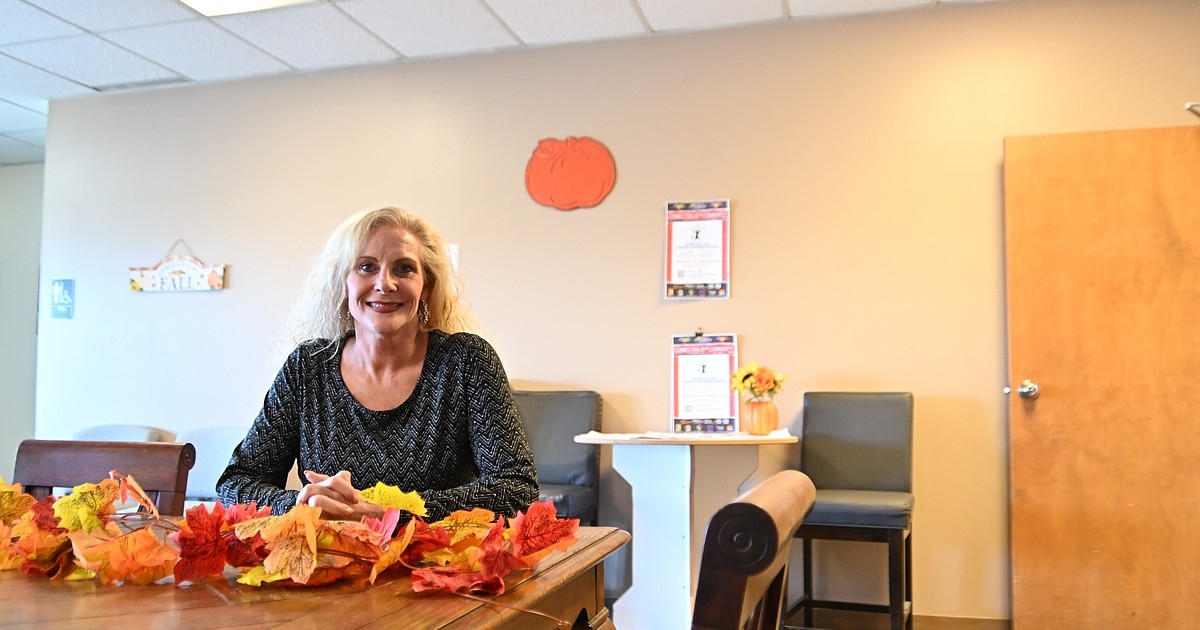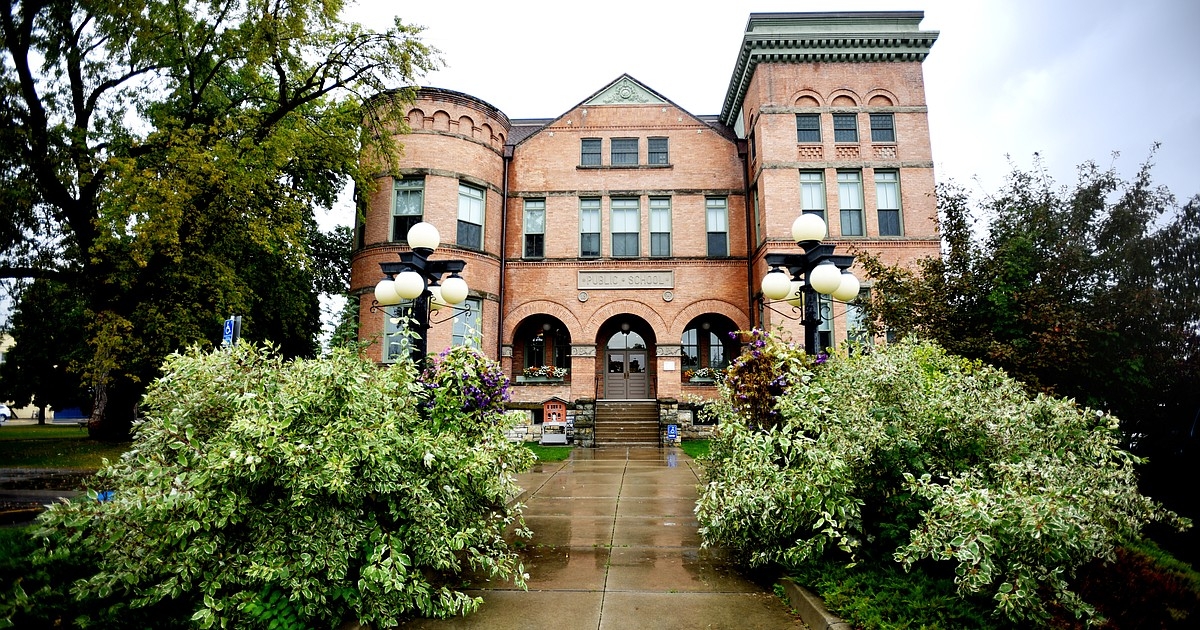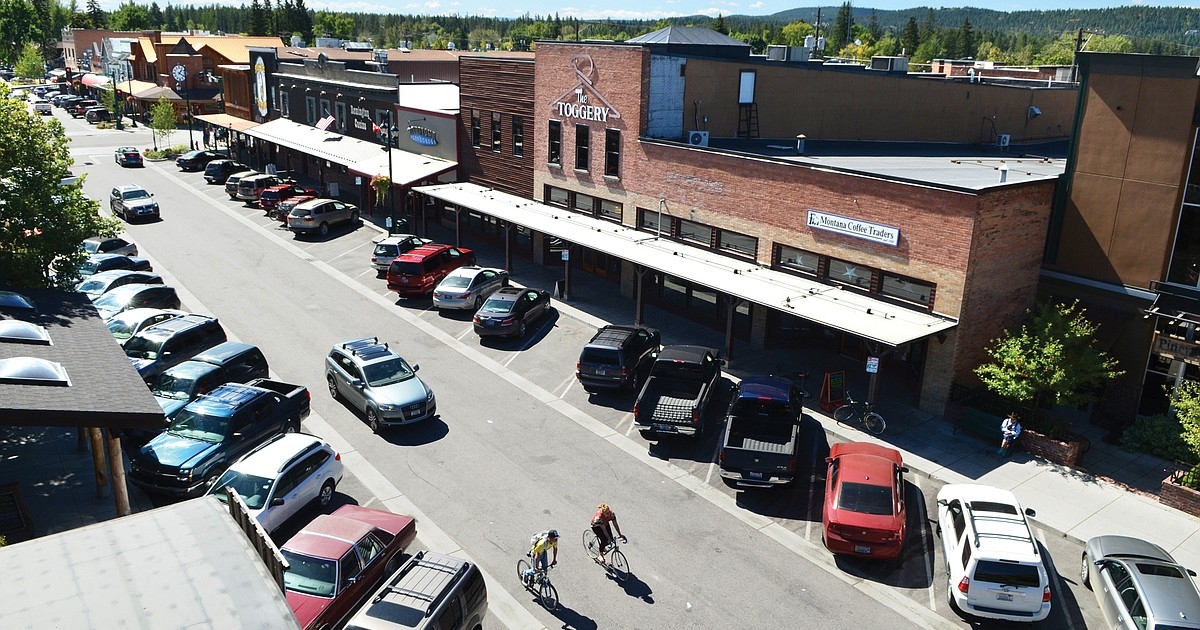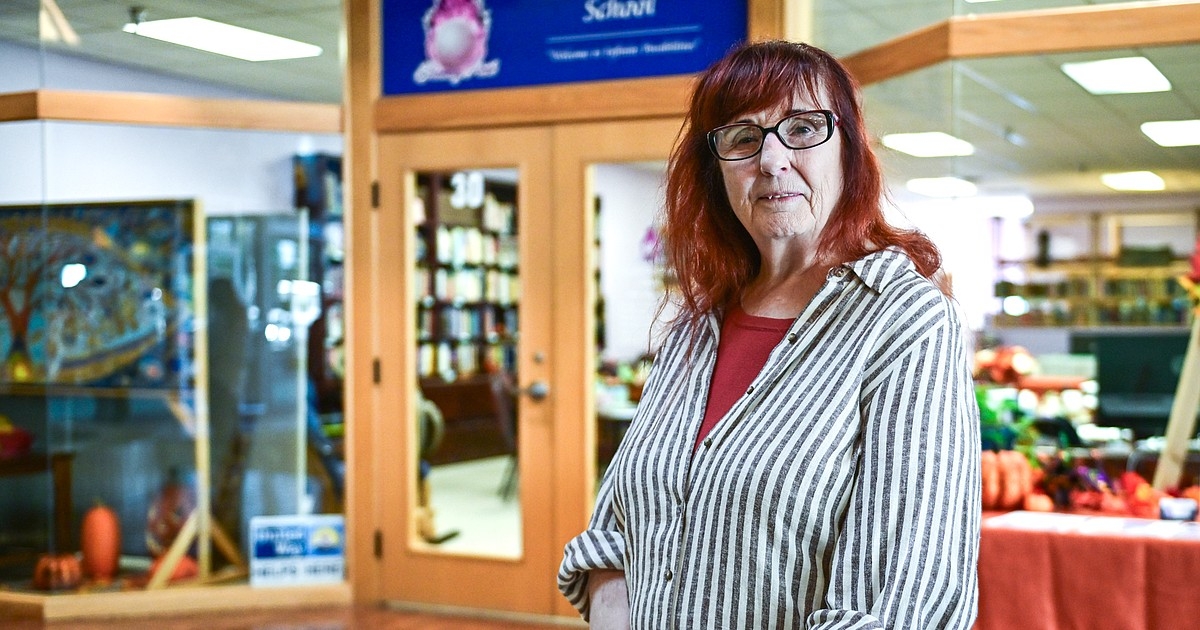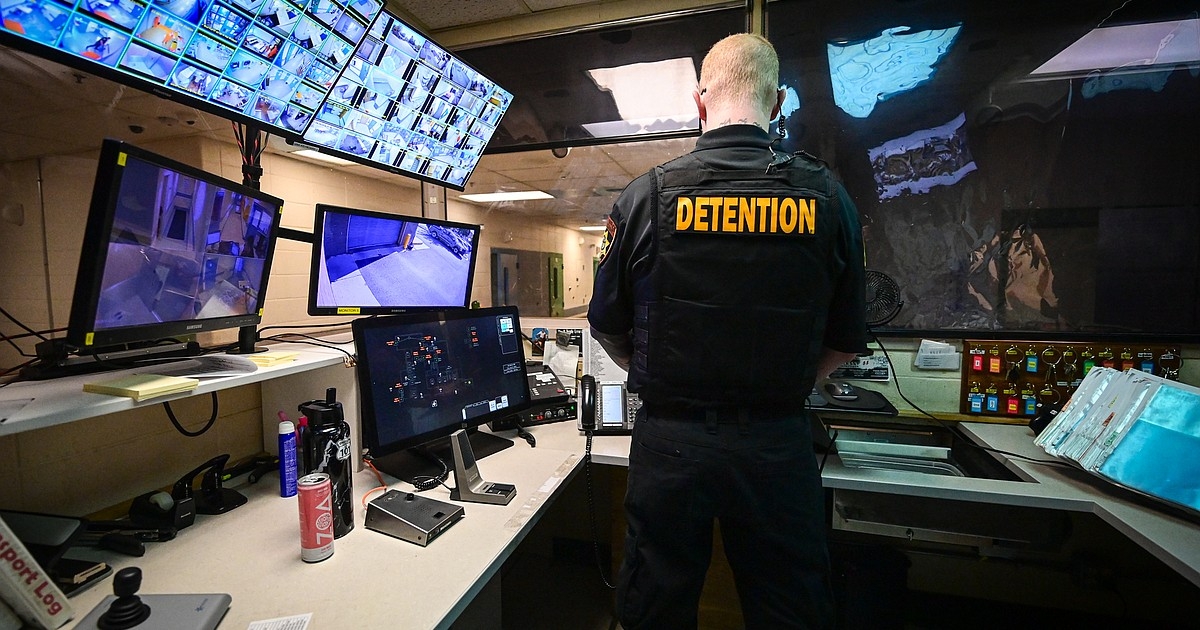Description
Recovering from a drug addiction isn’t a question of willpower.
That’s something Kari Bradley, a 53-year-old licensed behavioral peer support specialist, wished she knew 20 years ago. At Cedar Creek Integrated Health, Bradley works with clients who are in the early, and often socially isolating, stages of recovery from substance abuse.
“You think that when you first try a drug, you'll have control over it,” she said. “The drug controls you before you know it.”
Her addiction to methamphetamine began shortly after she was diagnosed with rheumatoid arthritis, a chronic autoimmune disease, at 34 years old.
At the time of her diagnosis, Bradley worked at a collections law firm and was raising two sons. Methamphetamine, more commonly known as meth, was introduced to her as a way to kill the pain.
Bradley recalled going weeks, even a month, between uses when she first started. Putting it down was easy. She was in control.
But then it stopped working the same way it used to. That former burst of euphoria was now a critical source of dopamine.
"You don't get high off the drug anymore,” she said. “It's just a dependency.”
Meth is a psychostimulant that raises levels of dopamine, the brain’s reward system, for short periods of time. Addiction develops as a person continues to seek the reward effect triggered by drug-associated cues, according to a 2020 study published in the National Library of Medicine.
Bradley soon found herself in and out of jail over the following years. She lost her job and nearly lost her house.
Four years after her diagnosis, she gave birth to her daughter. She knew she needed to stop, but it was an endless loop of quitting and relapsing. She spent 16 years fighting a losing battle with her addiction until she sought professional help.
“I just had enough,” Bradley said. “I wanted better for myself and my kids. ... I didn't want to live a life like that anymore.”
In October 2022, Bradley received a chemical dependency evaluation at Cedar Creek Integrated Health before she checked into Recovery Centers of Montana for 30 days of inpatient treatment.
"Inpatient was great, because you can leave the whole world behind,” Bradley said. "Just focus on yourself and where you're going.”
In recovery, Bradley learned about the effects of drug addiction and how to watch for signs of relapse.
She returned to Cedar Creek for six additional months of outpatient treatment. On the day she graduated in June 2023, Bradley was offered a job there as an administrative assistant.
By that point, she was seven months sober and ready to start a new life.
“It just felt like a godsend,” Bradley said. "I could be useful to those who were in the same position that I was when I first walked through these doors.”
Today, more than two years after graduating from treatment, Bradley works as a licensed behavioral peer support specialist at Cedar Creek’s drop-in center. Her newfound passion is helping people who have been in her shoes, especially mothers.
“It's hard to have hope in your life when you're lonely," Bradley said. “Often, people in addiction, they've just lost everything.”
She helped open the drop-in center nearly a year ago after she realized there were limited resources for detox programs. Bradley has accompanied people in visits to the hospital and advocated for detox treatment on their behalf.
“You have to advocate,” she said. “You really gotta fight for it.”
The drop-in center is a safe place for anyone who is struggling, whether it’s with homelessness or drug addiction. People are connected with resources to get mental health or addiction counseling. There are peer-based support groups, weekly recovery meetings and life coaching.
A wide variety of activities, such as yoga, meditation, or sessions with an energy healer, are also offered at the center.
“My vision really was ... to have a place where that lonely feeling could be relieved,” Bradley said. “You could find other people that are in the same boat as you are, that have had to dump all their friends and dump all their environments.”
Thinking back to 20 years ago, Bradley wished she knew of someone who shared her story, someone she could relate to. Balancing drug addiction and raising children was a painful and lonely process. It wasn’t until she got clean that she saw how it affected her kids.
“When you're in the middle of the forest, you can't see the trees,” she said. “I'm still in the process of helping my children to heal from those times.”
Working at Cedar Creek, however, has allowed her to be that person for others, Bradley said. Fueled by that knowledge, her next step is to attend Flathead Valley Community College in the spring, where she plans to get licensed as an addiction counselor.
"Those relationships can be healed. Sometimes it just takes a lot of work,” Bradley said. “It's a huge challenge, but eventually those wounds can be healed.”
Reporter Hannah Shields can be reached at 758-4439 or [email protected].
News Source : https://dailyinterlake.com/news/2025/oct/20/healing-wounds-how-a-journey-to-sobriety-led-to-a-lifetime-of-helping-others/
Other Related News
10/20/2025
Inside the Flathead County Jail aging pipes leak sewage officers walk 12-hour shifts thro...
10/20/2025
The Kalispell City Council will decide whether to hand over the Central School building t...
10/20/2025
Whitefish City Council discussed a variety of options for disbursing revenue from the cit...
10/19/2025
When Carolyn Rutherford began teaching in 1996 she wanted to help people live better live...
10/19/2025


